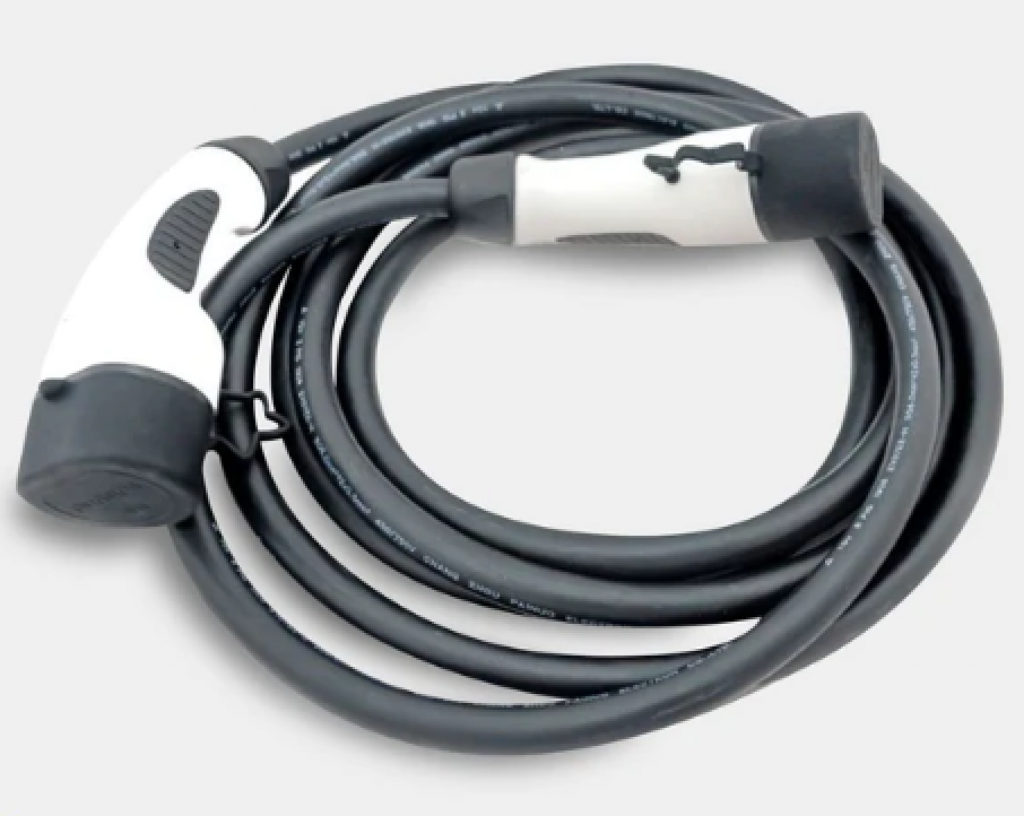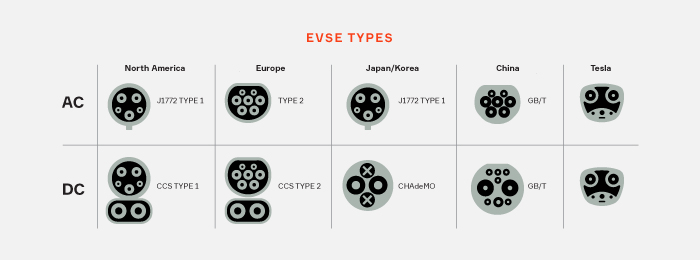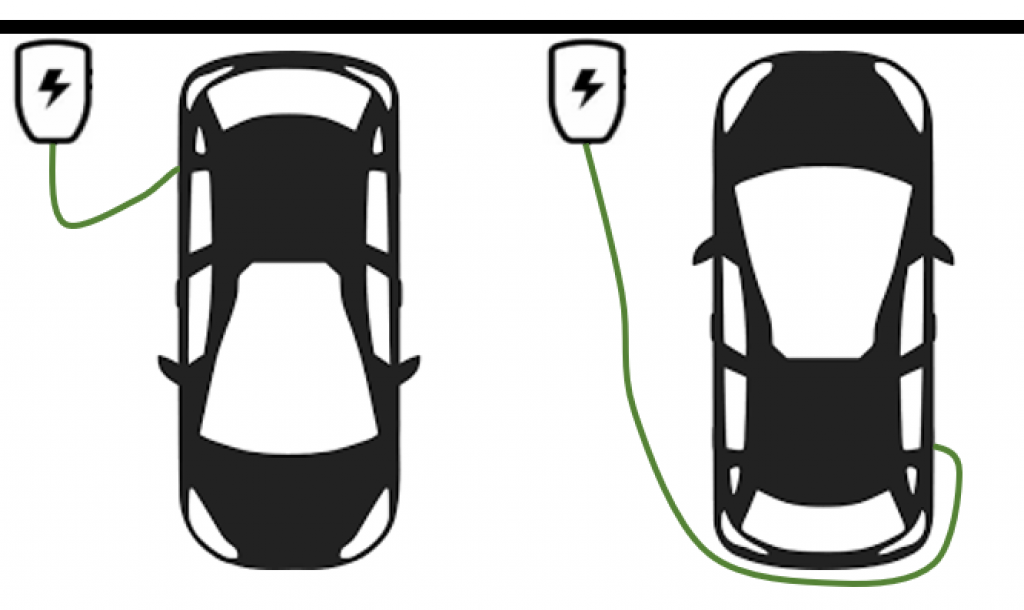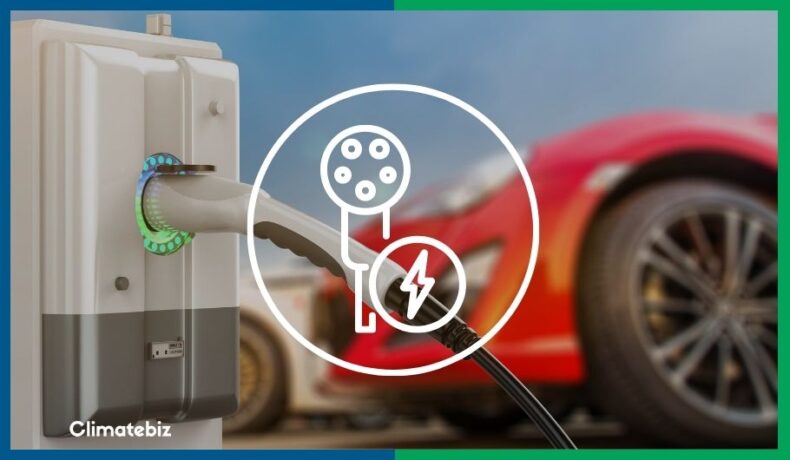Purchasing an EV cable can be a real headache. Charging levels, connector types, cable modes— there’s a lot for you to consider. We’ve already touched on these EV charging elements, but what about cable size — what size cable does your electric car require?
In this article, we teach you all you need to know about electric car cable size, with a particular emphasis on home charging. By the time you’re finished reading, you’ll be able to make your EV cable purchase with confidence!
Table of Contents
What Size Charging Cable Do I Need For My Electric Car?
The first step to determining the correct cable size is identifying your charger and vehicle’s current capacity.
The current capacity of your cable should be higher than the minimum of either your charger output capacity or the charging current of your vehicle. If your charger only supports 16 A, but your vehicle supports 32 A, a 20 A cable will be sufficient.
Should your budget allow it, it would be better to buy a charging cable capable of supporting your charger or vehicle’s highest current. This will be useful to charge your vehicle at a different charger with a higher current to charge faster. It’s better to have it and not need it than to need it and not have it.

The following table illustrates the different charging rates and times needed to charge your EV:
| Battery Capacity | Charging Rate 3,7kW | Charging Rate 7,4kW | Charging Rate 22 kW |
|---|---|---|---|
| 20 kWh | 5h30 | 3h00 | 1h15 |
| 30 kWh | 8h00 | 4h30 | 1h30 |
| 40 kWh | 11h00 | 5h45 | 2h |
| 50 kWh | 13h30 | 7h00 | 2h30 |
| 60 kWh | 16h15 | 8h30 | 3h00 |
| 70 kWh | 19h00 | 10h00 | 3h30 |
| 80 kWh | 21h45 | 11h30 | 3h45 |
| 90 kWh | 24h30 | 1h00 | 4h30 |
| 100 kWh | 27h00 | 2h15 | 5h00 |
Average Length
The average length of an EV charging cable is 16 ft (5m). This will suffice in most cases, but sometimes extra length is necessary. Although the extra length is convenient, you need to be careful as too long a cable will cause what’s known as a voltage drop, causing your vehicle charging speed to decrease.
In general, a 4mm 32 A cable will be sufficient for charging lengths up to 32 ft. It’s best to use a 6mm cable for lengths exceeding 32 ft to avoid excessive voltage drop.
Location
Be mindful of the location where you’ll charge your EV most frequently — will it be in an inconvenient position? You don’t want to unplug and move your EV constantly to get to your tools in your garage.
Charging cables are expensive items, and the price drastically increases with length — you don’t want to spend extra on excessive length. Moreover, longer cables are also more cumbersome to store when you’re not using them.

What Type Of Charging Cable Do I Need For My Electric Car?
The Type Of Connector You Need To Use
Charging connectors come in two primary variants: Type 1 and Type 2.
Distinguishing between the connectors is easy:
- Type 1 connectors have 5 pins, are standard throughout the U.S., and can charge up to 7.4 kW.
- Type 2 connectors have 7 pins, are more common throughout Europe and Asia, and provide a charging rate of up to 43 kW.

Protective Measures
Also, ensure you have dust caps to cover your connector when not in use. Dust and moisture will cause a poor electrical connection and cause degradation of the copper contacts in the connector, reducing the lifetime and necessitating early replacement.
If your cable did not come with dust caps, you could purchase them online or from EV accessory stores.

Do All Electric Cars Use The Same Type & Size Cable?
Unfortunately not. As illustrated above, several different connector types and different cable sizes exist.
Type 2 charging connectors and fast chargers will have thicker cables. So ensure you know the type of cable connector you need. If necessary, write it down, and store it in your vehicle.
Can You Use An Extension Cord With An EV Charging Cable?
Yes, it’s possible and very convenient. But be cautious of the extension cord’s rating. Most cheap household extension cords do not have a high enough power rating to support EV charging.
Beware
Exceeding the capacity of an extension cord can cause it to melt and start a fire. Heavy-duty extension cords are available and advised to reduce the risk, mainly because you will be charging your EV at your home.
How To Avoid Extension Cords
A simple solution would be for you to reverse into your driveway. This would save you several meters of charging cable and reduce the complexity of your charging setup.

Although it might seem convenient to buy a long extension cord, it’s better to buy one for the length you will use most. If the extension cord is too long, it’ll cause a voltage drop that will reduce the charging speed or even cause the charger to stop charging your EV.
Final Thoughts
Buying the correct cables for your EV is a worthwhile investment if done correctly. First, consider where you’ll often charge your EV to establish your priority specs.
Second, consider the annoying situations you want to avoid, like another car in the way when you want to charge your EV at home. Doing this will determine whether you need an extension cord and its length.
Before buying a long charging cable or heavy-duty extension cables, consider reducing the required length by merely reversing your EV into position when a charge is needed.
In closing, take care to ensure you purchase the correct type of cable for your EV — there are many types out there, and you certainly don’t want to waste money on the wrong one.

